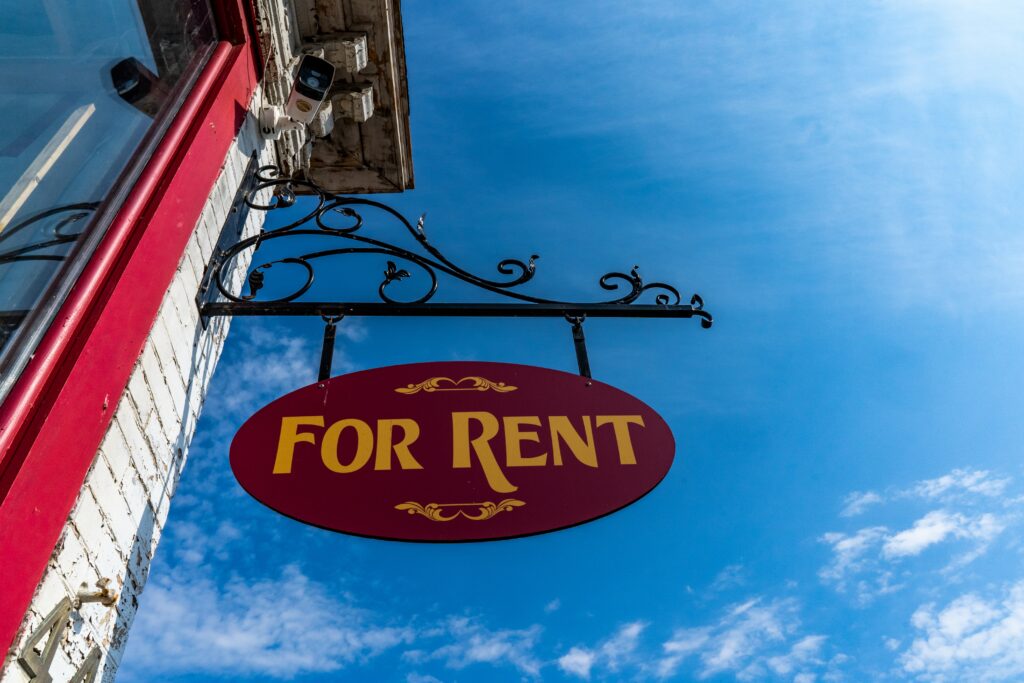Real estate investments have long been a popular way to build wealth for physical assets that can increase in value over time. However, when looking to maximize profits and minimize risks, funding these investments frequently necessitates careful thinking. The Debt Service Coverage Ratio (DSCR) loan is a crucial component of real estate finance and a statistic that is crucial in analyzing the viability of property investments.
In essence, DSCR loans evaluate a property’s capacity to produce enough revenue to pay off its debts. It’s a crucial tool for both seasoned and beginning investors as it impacts loan decisions and aids in determining the financial viability of a real estate project. This piece launches a thorough investigation of DSCR loans and their complex interplay with the short- and long-term rental models that support Airbnb, VRBO, and conventional long-term rentals.
The first step of our trip is an explanation of DSCR loans, which will reveal the intricacies of this type of financing and show its importance in the world of real estate investments. Then, as we go through the crowded short-term rental market, we’ll emphasize the appeal of websites like Airbnb and VRBO, which are renowned for their ability to generate significant rental income.
As we go further into the world of short-term rentals, we will analyze the benefits and drawbacks of this approach, illuminating the alluring advantages of higher rental revenue and flexibility in contrast to the difficulties presented by seasonal variations and elevated operating expenses.

DSCR Loans: A Primer
Finance choices are sometimes just as important as property selection in the complex world of real estate transactions. The Debt Service Coverage Ratio (DSCR) is one of the essential indicators at the core of these choices. We’ll analyze DSCR loans in this section, explain their importance in real estate finance, and emphasize the crucial part rental revenue plays in DSCR calculations.
What Are DSCR Loans?
Debt Service Coverage Ratio loans, often known as DSCR loans, are a real estate investor’s lifeline in terms of finances. Fundamentally, DSCR loans evaluate a property’s capacity to produce enough revenue to meet its debt commitments, including mortgage payments, interest, and other related expenses. It serves as a yardstick, showing if a property can provide enough cash flow to cover its debt obligations.
Significance in Real Estate Financing
It is nearly impossible to emphasize the importance of DSCR loans in the realm of real estate financing. Here’s why they’re vital:
- Risk evaluation: The risk involved in a real estate investment can be assessed with the use of DSCR loans. DSCR ratios are used by lenders to determine the risk associated with financing a specific piece of real estate.
- Lending Decisions: Lending decisions are influenced by DSCR ratios. A property becomes a more appealing possibility for lenders with a higher DSCR ratio, suggesting robust cash flow, which might result in better loan conditions.
- Investor Perception: DSCR ratios are another indicator of a property’s financial health that investors utilize. An advantageous DSCR ratio can boost investor trust, making it easier to secure financing or sell the property.
Importance of Rental Income in DSCR Calculations
The DSCR calculations’ lifeblood is rental income. It shows the cash flow a property produces and uses to pay down its debt. Why rental revenue is crucial is as follows:
1. DSCR Formula: The net operating income (NOI) of the asset is subtracted from the debt service to arrive at the DSCR ratio. Rental income, in turn, has a significant impact on NOI. As a result, the numerator of the DSCR ratio is directly impacted by the rental revenue.
2. Loan authorization: A property must be able to show that it can generate enough rental revenue to pay off debt to qualify for a DSCR loan. The chance of a loan being approved might rise with a healthy rental income stream, which can raise the DSCR ratio.

Short-Term Rentals (Airbnb)
Platforms like Airbnb have made short-term rentals possible, completely changing the real estate investing market. In this section, we’ll examine the idea of Airbnb short-term rentals and analyze the benefits and drawbacks of this tactic.
Concept of Short-term rental (Airbnb)
Property owners have the option to rent out their houses, flats, or extra rooms to visitors for a limited time thanks to short-term rentals, which Airbnb best exemplifies. The length of a short-term rental might range from one night to several weeks, in contrast to standard long-term rentals, which sometimes entail one-year contracts. Platforms like Airbnb have become quite successful and well-liked for investors looking to increase their real estate revenue as a result of this flexibility.
Pros of Short-Term Rentals
- Greater Potential for Rental Income: The possibility for much higher rental revenue compared to long-term leases is probably the most alluring feature of short-term rentals. Property owners may charge higher rates, especially in more desired areas or during the busiest travel times, creating a profitable revenue stream.
- Flexibility for Property Use: Property owners have the freedom to utilize their properties however they see fit thanks to short-term rentals. This implies that the owner is free to use the property as they see fit without being constrained by a lengthy lease arrangement.
- Tax Benefits: Tax advantages are given to hosts of short-term rentals by several governments. Tax deductions may be available for costs associated with property management, upkeep, and even some parts of the actual property. Additionally, the tax rates that apply to short-term rental revenue and long-term rental income may differ.
Cons of short-term rentals
- Seasonal variations: Seasonal changes can have a big impact on short-term rentals. Demand for short-term lodging can fluctuate significantly depending on location and season, resulting in periods of high occupancy and profitable income followed by slower periods with reduced revenue.
- Costlier and more labor-intensive management of short-term rentals: This is a potential drawback. Frequent visitor turnover necessitates time and money for cleaning, upkeep, and turnover. A high-quality visitor experience and facilities are frequently expensive to provide.
- Potential Legal and Regulatory Obstacles: Zoning rules, construction codes, and homeowner association limitations are just a few of the potential legal and governmental obstacles that short-term rentals may face. Fines and legal repercussions may follow violations of these rules. Additionally, to maintain the residential communities’ unique character, several towns have placed restrictions on short-term rentals.
Short-Term Rentals (VRBO)
Platforms like VRBO (Vacation Rental By Owner) have developed as competitive alternatives to Airbnb as the short-term rental market continues to grow. In this section, we’ll examine VRBO as a substitute for short-term rentals and compare the advantages and disadvantages of VRBO and Airbnb.
Explaining VRBO as a substitute
Vacation Rental By Owner, or VRBO, is a vacation rental website that enables house, cabin, condo, and other property owners to market their properties for short-term rentals. It is comparable to Airbnb in that it offers rooms that are distinctive to tourists, but it also has unique qualities that make it stand out.
Comparative Analysis: VRBO vs. Airbnb
Pros of VRBO:
- Targeted Audience: Compared to Airbnb, VRBO frequently appeals to a slightly different clientele. It is a great option for property owners who provide larger accommodations, including vacation homes and cabins, as it tends to draw visitors seeking these types of lodgings.
- Pricing Flexibility: VRBO gives property owners greater pricing flexibility. The ability to establish their pricing, including nightly, weekly, or monthly rates, gives hosts the freedom to change their charges according to demand and the time of year.
- Lengthier Stays: In contrast to Airbnb visitors, VRBO guests frequently want longer stays. Less turnover might result in lower cleaning and maintenance expenses for property owners.
- Guests are not charged service fees: In contrast to Airbnb, VRBO normally does not charge service fees to guests, which may appeal to more tourists when making a reservation.
Cons of VRBO
- A Lower User Base: Despite having a sizable user base, VRBO often has a narrower audience than Airbnb. This can result in fewer requests for reservations and increased competition.
- Listing Fees: To advertise their properties on VRBO, hosts must pay a yearly subscription fee. Even while Airbnb has fees, the subscription model might not be appropriate for hosts who only sometimes host or have a single home.
- Place Less Stress on Special Experiences: Vacation homes are VRBO’s main focus, and the site frequently draws visitors looking for conventional lodging. Travelers seeking out unusual and unorthodox accommodations might find this less tempting.
- Less worldwide Presence: Due to its greater worldwide reach, Airbnb is a popular option for owners trying to draw in visitors from around the world.

Long-Term Rentals
Long-term rentals are a dependable and persistent aspect of the real estate industry, frequently typified by one-year lease agreements. In this part, we’ll define long-term rentals, emphasize the stability they provide, and conduct a fair analysis of the advantages and disadvantages of this strategy.
What Long-Term Rentals Are and How Stable They Are
Long-term renting, commonly referred to as conventional renting, entails renting out a house to a renter for a protracted length of time, usually a year or more. This strategy puts stability and a steady supply of rental revenue first. In residential real estate, where renters frequently look for a place to call home for a longer period, long-term rental agreements are prevalent.
Pros of Long-Term Rentals
- Consistent Rental revenue: Long-term rentals offer a constant and dependable source of rental revenue. Property owners benefit from a regular stream of income without the seasonal variations linked to short-term rentals because leases often last a year.
- Lower Maintenance and Turnover Costs: Long-term renters typically use a space for longer periods, which lowers turnover expenses like cleaning, advertising, and the time it takes to locate new tenants. Additionally, when tenants consider a property to be their long-term home, they frequently take better care of it, potentially reducing maintenance costs.
- Lower Regulatory Risks: Compared to the short-term rental industry, long-term rentals often face fewer regulatory changes and obstacles. Regulations and zoning constraints are often less exposed, which lowers the chance of unforeseen compliance concerns.
Cons of long-term Rentals
- Less Income from Rentals Compared to Short-Term Rentals: The possibility for lesser rental revenue as compared to short-term rentals is the disadvantage of long-term rentals that is most immediately evident. Long-term tenants frequently pay a monthly rent that is less than what the short-term market will pay at nightly or weekly rates.
- Less Flexibility in Property Use: Long-term rental contracts restrict the amount of flexibility that property owners have in how they use their properties. To make modifications or inhabit the property themselves, owners could have to wait until the lease ends, which could limit their capacity to react to shifting personal or market conditions.
DSCR Loan Considerations
Investors must comprehend how rental revenue affects debt service coverage ratio (DSCR) loans because of their critical function in real estate finance. We’ll examine the nuances of DSCR loans, explain how rental income affects them, and analyze the effects of both short- and long-term rents on DSCR ratios.
How Rental Income Affects DSCR Loans
Rental revenue is a critical component of how DSCR loans assess a property’s capacity to generate enough income to pay off its debts. Here is how rental money enters the picture:
- DSCR Formula: By dividing the property’s Net Operating Income (NOI) by its Debt Service (DS), the DSCR ratio is obtained. Rental income, which is the money made from renters or visitors, makes up a sizeable portion of NOI.
- Higher rental income and a stronger DSCR: The higher the NOI, which in turn raises the DSCR ratio, the more rental revenue a property produces. A high DSCR ratio makes a property more appealing to lenders since it shows that the rental revenue will more than cover the loan obligations.
- Lending Determinations: When accepting loans, lenders may have certain DSCR ratio restrictions. Strong rental income and a positive DSCR ratio can boost loan approval chances and perhaps lead to more favorable loan conditions.
Analysis of How Short-Term and Long-Term Rentals Impact DSCR Ratios
The decision to rent for a short period against a lengthy period has a substantial influence on DSCR ratios and, consequently, real estate finance. Here is a comparison of several renting approaches:
Short-Term Rentals (e.g. VRBO and Airbnb)
- Higher Rental Revenue Potential: Due to premium pricing, especially during peak seasons, short-term rentals can provide more rental revenue.
- Variable Income: Due to seasonal variations and market dynamics, the revenue from short-term rentals might be unstable.
- Impact on DSCR: If short-term rentals are well-managed and sustain high occupancy rates, their potential for increased income can result in more favorable DSCR ratios.
Long-Term Rentals
- Steady Rental revenue: Monthly rental revenue from long-term rentals is reliable and less subject to seasonal fluctuations.
- However, compared to short-term rentals, the rental revenue from long-term leases is often lower on a per-night basis.
- Impact on the DSCR: Rentals over a long period often have consistent, but somewhat lower, DSCR ratios. Investors profit from stable revenue, but it’s likely in most cases, that they won’t reach the higher DSCR ratios observed in the short-term rental market.
Conclusion
All in all, we’ve got a thorough grasp of the complex interaction between DSCR loans and real estate rental strategies, with an emphasis on both short- and long-term rentals. We’ve emphasized the importance of Debt Service Coverage Ratio (DSCR) loans, which examine a property’s ability to generate revenue for debt repayment, and highlighted the crucial role that rental income plays in this evaluation.
We looked closely at short-term rentals, which are exemplified by websites like Airbnb and VRBO, contrasting the opportunities for more revenue and flexibility with the drawbacks of seasonality and higher operating expenses. Long-term rentals, on the other hand, provide stability through constant revenue, fewer turnovers, and lower maintenance costs, however at the sacrifice of typically lower rental income.
In the end, your choice should be consistent with your financial goals, level of risk tolerance, and kind of property. You should decide wisely to maximize your real estate investing efforts by understanding how different rental tactics affect DSCR ratios.
About the Author
NMLS# #244003
Brian Quigley has been in the Denver mortgage industry since 2003. Customer satisfaction has been his top priority while guiding clients through the home loan qualification process. He is proficient in all types of mortgage financing including FHA/VA, Conventional, USDA, Jumbo, Portfolio, 1031 Exchanges, Reverse Mortgages, Refinancing, Construction loans, and FHA 203K loans.